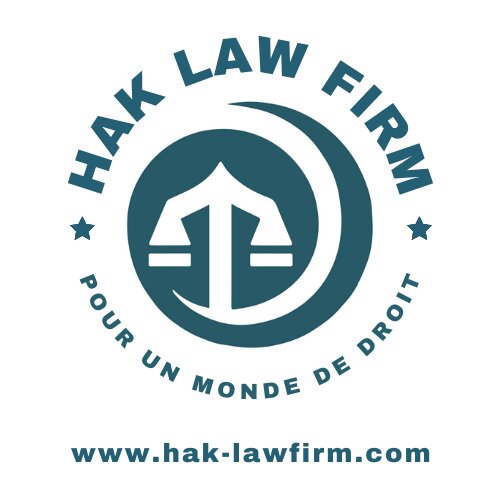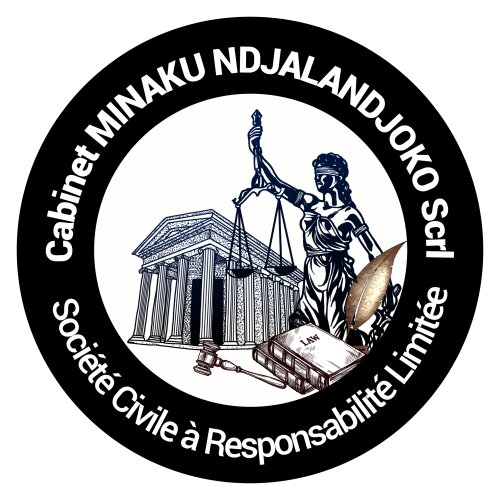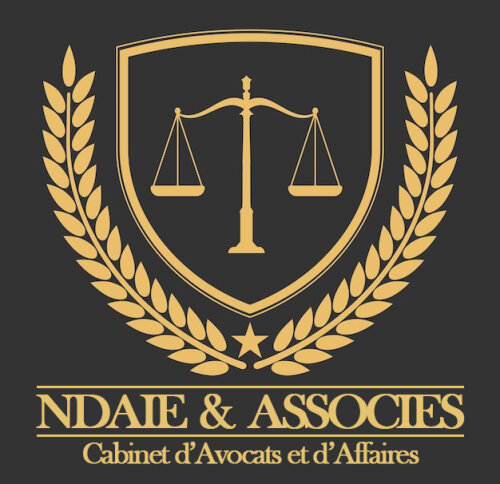Best Communications & Media Law Lawyers in DR Congo
Share your needs with us, get contacted by law firms.
Free. Takes 2 min.
Or refine your search by selecting a city:
List of the best lawyers in DR Congo
About Communications & Media Law in DR Congo
Communications & Media Law in the Democratic Republic of the Congo (DR Congo) addresses the legal framework governing the fields of broadcasting, telecommunications, the internet, and print media. This area of law focuses on regulating the dissemination of information and ensuring freedom while maintaining public order and protecting national security. The legal landscape is influenced by both national legislation and international treaties to which DR Congo is a signatory. Key priorities include upholding freedom of speech, censorship and content regulation, and ensuring compliance with technological advancements such as digital communications and cybersecurity.
Why You May Need a Lawyer
There are several scenarios where individuals and organizations may require legal assistance in Communications & Media Law:
- Establishing or operating media outlets, which requires compliance with licensing and regulatory requirements.
- Addressing issues related to freedom of speech, censorship, and defamation either as a media entity or as an individual victim.
- Negotiating contracts and intellectual property rights in media production and distribution.
- Understanding and navigating the complexities of digital communications and data privacy in the increasingly online-driven media landscape.
- Challenging regulatory decisions or defending against investigations conducted by governmental bodies.
Local Laws Overview
Communications & Media Law in DR Congo is governed by a myriad of legal statutes, decrees, and regulatory frameworks. Key aspects include:
- Media Legislation: Encompasses laws pertaining to the press, emphasizing the dual objectives of protecting freedom of expression and ensuring responsible journalism.
- Telecommunications Act: Governs the telecommunications sector, with provisions on licensing, competition, and consumer protection.
- Digital Laws: Involves data protection and privacy, particularly in relation to electronic communications and information services.
- Regulatory Body: The Autorité de Régulation de la Poste et des Télécommunications du Congo (ARPTC) is the chief regulator overseeing compliance in telecoms and broadcasting.
- Intellectual Property: Covers copyright and trademark protections crucial for media and content creators.
Frequently Asked Questions
1. What types of licensing are required for launching a media outlet in DR Congo?
Media outlets must obtain licenses from relevant authorities, typically involving approvals from the Ministry of Communications and ARPTC, and must adhere to content regulations and legal standards.
2. How is freedom of expression protected under DR Congo's laws?
Freedom of expression is constitutionally guaranteed, but it is subject to limitations related to defamation, incitement, and threats to national security or public order.
3. Are internet-based communications subject to the same regulations as traditional media?
Yes, online information is subject to various restrictions similar to traditional media, including rules on content moderation, data protection, and cybersecurity.
4. What legal issues should media companies consider in content creation?
Media companies should consider intellectual property laws, contracts with content creators, censorship laws, and international treaty obligations affecting content distribution.
5. How can foreign journalists work legally in DR Congo?
Foreign journalists need appropriate visas and work permits and must comply with local laws regarding the public dissemination of information.
6. What recourse is available for someone wronged by defamatory content?
Individuals can file complaints with the competent judicial authorities, seeking retraction, damages, or both under civil and criminal defamation laws.
7. How does DR Congo's legal framework address digital media and cybersecurity?
It includes comprehensive laws on data protection, privacy, and cybercrime, which aim to secure digital communications and protect users' personal information.
8. How are media ethics enforced in DR Congo?
Media ethics are enforced through statutory regulations, the establishment of professional bodies, and adherence to journalistic codes of conduct.
9. What is the role of ARPTC in media regulation?
ARPTC regulates telecommunications and media, ensuring compliance with licensing, managing spectrum allocations, and overseeing service quality.
10. Are there specific laws affecting advertising in DR Congo?
Yes, advertising is regulated to prevent misleading conduct, support fair competition, and protect consumers, with specific provisos on content and sponsorship.
Additional Resources
Here are some resources and organizations that can assist in understanding Communications & Media Law in DR Congo:
- ARPTC: The main regulatory body for media and telecommunications.
- Ministry of Communications: Provides information about media policy and legal frameworks.
- UNESCO's Office in DR Congo: Offers resources and support on freedom of expression and media development.
- Bar Association of Kinshasa: Useful for finding legal professionals specializing in media law.
Next Steps
If you require legal assistance in Communications & Media Law in DR Congo, consider the following steps:
- Research: Gather as much information as possible regarding your specific issue or requirement.
- Consultation: Engage with a lawyer or legal expert specializing in Communications & Media Law for an initial consultation to assess your situation.
- Documentation: Collect all relevant documents, communications, and records pertinent to your case or inquiry.
- Action: Follow your legal advisor's guidance to address your concerns or complete necessary legal processes.
- Stay Informed: Keep abreast of changes in the legal landscape that might impact your area of interest or business operations.
Lawzana helps you find the best lawyers and law firms in DR Congo through a curated and pre-screened list of qualified legal professionals. Our platform offers rankings and detailed profiles of attorneys and law firms, allowing you to compare based on practice areas, including Communications & Media Law, experience, and client feedback.
Each profile includes a description of the firm's areas of practice, client reviews, team members and partners, year of establishment, spoken languages, office locations, contact information, social media presence, and any published articles or resources. Most firms on our platform speak English and are experienced in both local and international legal matters.
Get a quote from top-rated law firms in DR Congo — quickly, securely, and without unnecessary hassle.
Disclaimer:
The information provided on this page is for general informational purposes only and does not constitute legal advice. While we strive to ensure the accuracy and relevance of the content, legal information may change over time, and interpretations of the law can vary. You should always consult with a qualified legal professional for advice specific to your situation.
We disclaim all liability for actions taken or not taken based on the content of this page. If you believe any information is incorrect or outdated, please contact us, and we will review and update it where appropriate.
Browse communications & media law law firms by city in DR Congo
Refine your search by selecting a city.
















